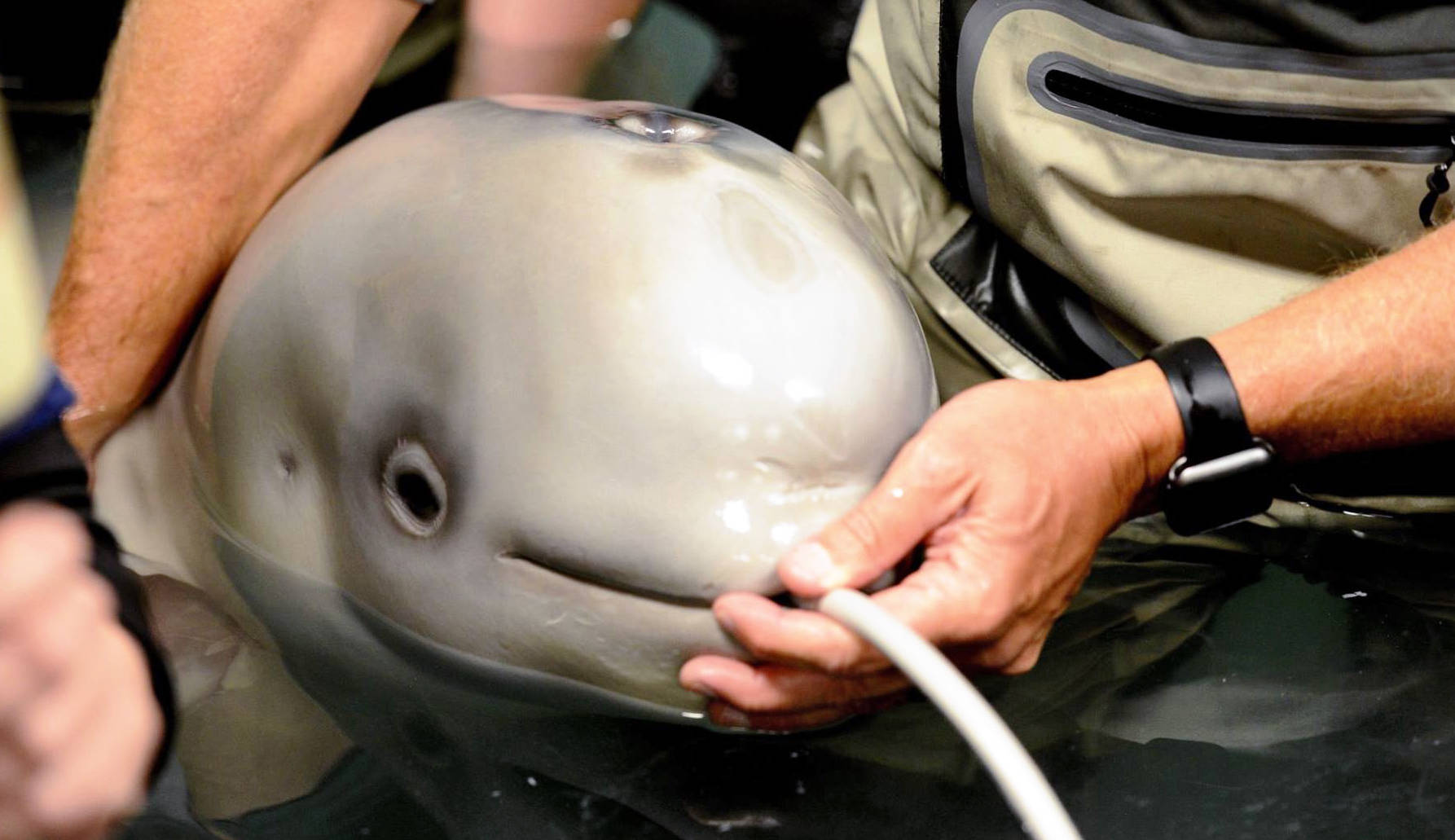By KAT SORENSEN
Peninsula Clarion
A year after his rescue from a mudflat near Trading Bay, Tyonek the Cook Inlet beluga whale is continuing the rehabilitation process and growing at his new home at SeaWorld San Antonio in Texas.
Tyonek is the first whale from the endangered Cook Inlet population to survive in human care. After the four-week-old whale was rescued on Sept. 30, 2017, Tyonek was brought to the Alaska Sea Life Center in Seward, where he was cared for on a 24/7 basis. He was moved from the Sea Life Center to San Antonio in March 2018.
According to a press release from SeaWorld, Tyonek has reached many encouraging milestones in the year since his rescue and subsequent move south. He’s progressed from being severely underweight, weighing only 140 pounds at 5’3” long, when he was first rescued, to weighing 400 pounds and measuring 6’10” long. He recently started eating fish like herring and capelin as a supplement to his daily bottle feeding.
Tyonek is also benefiting from interactions with SeaWorld San Antonio’s nine other beluga whales.
“We see Tyonek mimicking other whales’ behaviors and playing with toys,” said Dr. Steve Osborn, senior veterinarian at SeaWorld San Antonio. “Tyonek is also swimming and playing, sitting face-to-face, bumping and pushing up against other belugas, all positive signs as he continues to grow and learn.”
This social interaction was one of several reasons that Tyonek was moved to SeaWorld San Antonio. At the beginning of 2018, NOAA Fisheries determined that Tyonek was non-releasable because of nutritional and social dependence and lack of survival and socialization skills needed to lead a successful life in the wild.
“The most important factor for placement of Tyonek was his age and social needs,” said Kate Brogan with NOAA Fisheries Public Affairs when it was announced that Tyonek was being moved to San Antonio. “SeaWorld of Texas has the most appropriate social group to integrate Tyonek, comprising of several mature females that may act as surrogate mothers as well as two young male calves that will provide additional companionship for him as he continues to grow.”
Now, according to SeaWorld, Tyonek is demonstrating common social behaviors and interactions with other belugas.
“Tyonek’s successful rehabilitation and growth is the result of an amazing team effort involving federal authorities, numerous organizations, and rescue and recovery experts in multiple states,” said SeaWorld Chief Zoological Officer Dr. Chris Dold. “Experts from several organizations collaborated to give Tyonek a second chance at life, and his growth, acceptance from the beluga pod and recent milestones are a testament to this team-curated care from many passionate and dedicated professionals.”
Since 1979, the Cook Inlet beluga whale population has declined by nearly 75 percent and is designated as endangered under the Endangered Species Act. NOAA scientists estimated in 2016 the population at about 328, in comparison to 1,300 in 1979.
“We want to thank the Alaska SeaLife Center and our partners in the marine mammal conservation community for the dedicated care that helped rehabilitate Tyonek,” said Assistant Administrator for NOAA Fisheries Chris Oliver. “The permanent placement of Tyonek at SeaWorld San Antonio — and the scientific knowledge gained by learning from him for years to come — will benefit Cook Inlet beluga research and recovery.”

